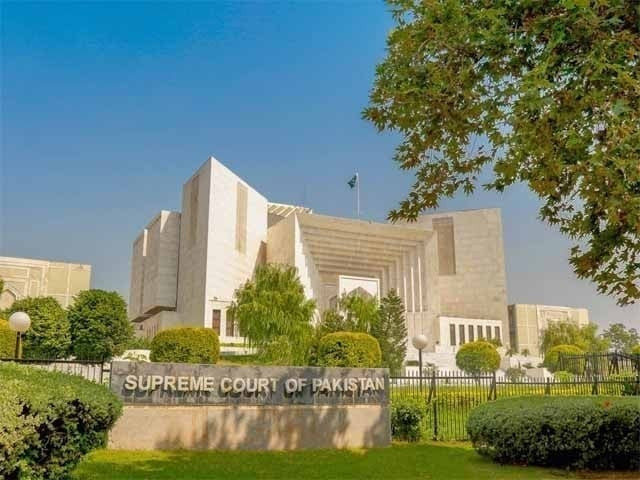
The Supreme Court’s ruling in the reserved seats case has offered a glimmer of hope for the restoration of democracy and an independent judiciary, curtailing the present regime’s attempts to amend the constitution.
The majority verdict, delivered by eight judges, has cast serious doubt on the integrity of the general elections.
The ruling includes specific directions to the Election Commission of Pakistan (ECP), highlighting ‘the peculiar facts and circumstances of the general election of 2024.’
It is anticipated that the detailed reasons will elaborate on these circumstances and potentially charge the ECP for its conduct during the elections.
Notably, four of the eight judges are future chief justices. Legal experts believe that this majority judgment will inspire other members of the superior judiciary.
The majority of judges disagreed with the note provided by Justice Jamal Khan Mandokhail and Chief Justice Qazi Faez Isa. Discussions among the judges reportedly continued regarding their dissenting note.
A senior lawyer suggested that the majority rejected the dissenting note due to concerns that the ECP might manipulate the situation, allocating a few reserved seats to PTI while distributing the rest to other parties.
The majority of judges were also uncomfortable with the government’s proposed judicial package through a constitutional amendment, prompting them to halt the government’s plans.
Interestingly, CJP Isa and Justice Mandokhail believed that ‘peculiar circumstances’ did not exist, questioning under what law a few seats were awarded to PTI. The opinions of both judges are contradictory, and the difference between their orders and the majority judgement given by the eight judges is also notable.
A lawyer noted that the primary difference between the dissenting opinion and the majority judgment was the potential for the ECP to manipulate the situation, ensuring a 2/3rd majority for the constitutional amendment.
The independence of the judiciary was also perceived to be at risk due to the government’s judicial package.
The dissenting judges argued that the PTI was not present to challenge the order, raising questions about how they justified recognising PTI and awarding them seats.
Observers note that judicial politics played a significant role in the case, and the ball was now in the security establishment’s court regarding their reaction to the decision.
Meanwhile, there is a serious clash between powerful circles and the judiciary on the matter of meddling by the agencies. With the public showing resistance through the ballot on February 8, the superior courts took a stand against the interference in judicial functions.
However, despite the explicit concerns aired by the other judges, CJP Isa did not take a stand with them. It is also noteworthy that during his tenure, the current regime did not face resistance to its policy towards PTI, and the CJP did not create hurdles for state institutions against their crackdown on PTI.
‘Inspiration for other judges’
Regarding political implications, a political analyst noted that although the head was standing elsewhere, the judiciary led by future CJP Syed Mansoor Ali Shah took a stand for judicial independence and democracy.
A senior political leader said the majority judgment also dealt a serious blow to the ongoing unholy alliance among three powerful individuals. If the powerful circles fail to address the majority judges’ concerns, the court may scrap the election results.
‘Welcome relief’
Former Additional Attorney General Tariq Mahmood Khokhar commented that the majority opinion was a welcome relief for a nation mired in existential crises. “It is a step back from the brink; a triumph for the Constitution, democracy, and judicial independence. More so in the face of un-representative legislatures, illegitimate regimes, and dysfunctional institutions under the sway of malignant players,” he noted.
Khokhar added that the January 13 PTI election symbol judgment has been repudiated twice: first by democracy’s vengeance on February 8 and now by the constitution’s vengeance on July 12.
He said that the senior puisne judge and his concurring colleagues have righted a grievous wrong, signalling a positive future for an institution previously criticised for its failures. “It portends well for the future. An institution publicly reviled for its history of failures and tattered moral authority appears to rise above its former self.”
Barrister Asad Rahim Khan said that the Supreme Court has found for the will of the people, adding that it has declared that elected representatives be allowed their rightful strength in the assembly.
“It has also gone some distance in repairing the damage of the ludicrous bat symbol judgment by this chief justice.” The barrister further stated that it nonetheless must be said “that the court pulled us out of a problem entirely of its own making”.
“The people are entitled to live in a democracy. They shouldn’t have to wait for the threat of constitutional amendments (that directly affect senior judges) to bring about such outcomes”, he added.
Abdul Moiz Jaferii commented that the issue was not just about reserved seats but the engineering that has occurred since the polls closed on February 8, when the people decided who they wanted to lead them which was not acceptable to the establishment. “Ever since then, the few have tried to subvert the will of the many. They have tried to decide for us, to tell us what our social contract says, to tell us what we really meant. This was evident to everyone except the CJP.”
Jaferii said that after today, the only guarantee is that the CJP is leaving on October 26. “Let’s see what they throw at the constitution next,” he added. “For now, let’s rejoice. We have a Supreme Court which in the majority eschewed clerical complicity and chose instead to do the right thing. The plainly right thing. The obvious thing. Obvious to all except one person”, he added.
‘Victory for the people’
Former law officer Waqar Rana asserted that the presence of individuals with courage and conviction in courts can significantly impact outcomes. The chief justice, deflecting responsibility, blames the ECP for the ‘misinterpretation’ of the symbol case.
He pointed out that the state’s “expenditure of tens of millions to sup-press the people’s choice” has proven futile. He added that the judgment represented not just a victory for a specific party, but for the people at large.
Paula Newberg, in her influential book ‘Judging the State,’ observes that whenever courts have the opportunity, they strive to uphold the constitution, Rana added.
Rana found it intriguing that while typically robust in his judgments, the CJP merely signed and perfunctorily read the dissenting note of another judge, particularly lacking clarity in paragraph 6.
This, he noted, suggests that upon finding himself in the minority, he seemed to lose all prior interest and enthusiasm exhibited during the lengthy hearing.
Insisting on a literal interpretation of constitutional provisions (Article 51(6)), without considering constitutional morality and the ethos outlined in the preamble — the representative nature of governance and the sacred trust vested in power.
Political analysts note that PTI’s bargaining position with influential circles has significantly strengthened following the majority judgment. Now, attention turns to how the current regime and relevant authorities will respond to this ruling.


















COMMENTS
Comments are moderated and generally will be posted if they are on-topic and not abusive.
For more information, please see our Comments FAQ